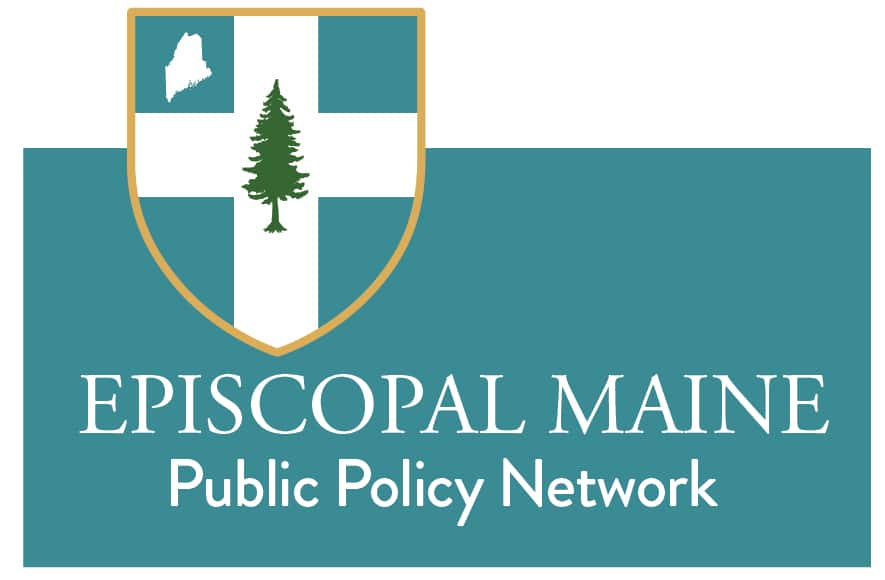
Search Results for
tag/creation_care
Blog Post
Maine Legislature resumes work in Augusta
The legislature convened the second session this week and the schedule for public hearings and work sessions is already starting to fill up. All legislative committee work will be conducted virtually at least through January...
Resource
Ministry Exhibits
Please be sure to visit the ministry tables during convention! Maine Episcopal Public Policy Network Faith Formation Mission Resources Camp Bishopswood Diocesan Creation Care Team & the Society of Companions of the Holy Cross Committee...
Resource
“Love God, Love God’s World” Small Group Curriculum
“Love God; Love God’s World” is a nine-session, film-based curriculum designed for Episcopalians anywhere on the journey with creation care and environmental ministry—from newcomers looking to take their first step to seasoned leaders seeking a...
Blog Post
Episcopal Diocese of Maine will affiliate with the Wabanaki Alliance Tribal Coalition
Letter from Bishop Brown to members of the Creation Care Team, Committee on Indian Relations, Episcopal Peace Fellowship, and Racial Justice Council, Diocesan Council, Standing Committee, and diocesan staff: 20 December 2023, an Ember Day...
Resource
Faith and Climate Organizations
Creation Care Team Faith and Climate Organizations Anglican Communion Environmental Network An official network of the Anglican Communion that shares resources and best practices for responsible environmental stewardship, supports local initiatives and provides networking opportunities....
Resource
Climate Advocacy Organizations
Creation Care Team Climate Advocacy Organizations 350 Maine 350 Maine is a grassroots movement with local chapters working primarily on state and local initiatives. They focus on climate justice and work extensively with youth. Citizens’...
Resource
Climate Organizations for Youth
Creation Care Team Organizations for Youth The Climate Initiative Grassroots climate movement of youth and adults built on hands-on education and action to activate and empower youth. Based in Kennebunkport, they work with teachers and...
Resource
Environmental Land and Water Organizations
Creation Care Team Land and Waters Casco Baykeepers Improves and protects the environmental health of Casco Bay by collecting scientific data, advocating for clean water and engaging the community. Island Institute Working to further the...
Resource
Special Commission to Study Diocesan Investments (SCSDI)
Convention adopted the resolution below (and here) regarding the investment of diocesan funds which asks the bishop to form a special commission to discuss the resolution, the ‘call to action’ attached to the resolution, and...
Resource
“Restoring Our World, Our Common Home” Creation Care Liturgy
Season of Creation, Earth Week, Earth Day, Climate Justice Liturgy